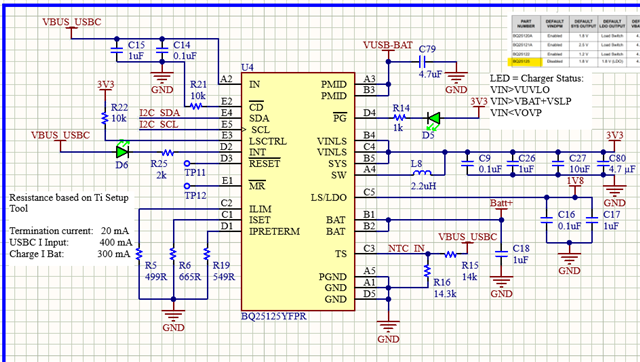Tool/software:
Hello,
I’m using the BQ25125 in my design and running into an I²C communication issue. The MCU is operating at 1.8V logic, and I can communicate with the BQ25125 without problems when VSYS is below 2.9V.
However, once I raise VSYS above 2.9V, the BQ25125 stops responding on I²C. The MCU is still running fine at 1.8V, but SDA/SCL transactions no longer get ACKs from the device.
Some details:
-
MCU I/O voltage: 1.8V
-
BQ25125 powered normally from battery/VSYS
-
I²C lines pulled up to 1.8V
-
Communication is fine at lower VSYS values
-
Issue only occurs when VSYS > 2.9V
- 1.8V is sourced from LDO of BQ25125
- VBAT and charger is connected




